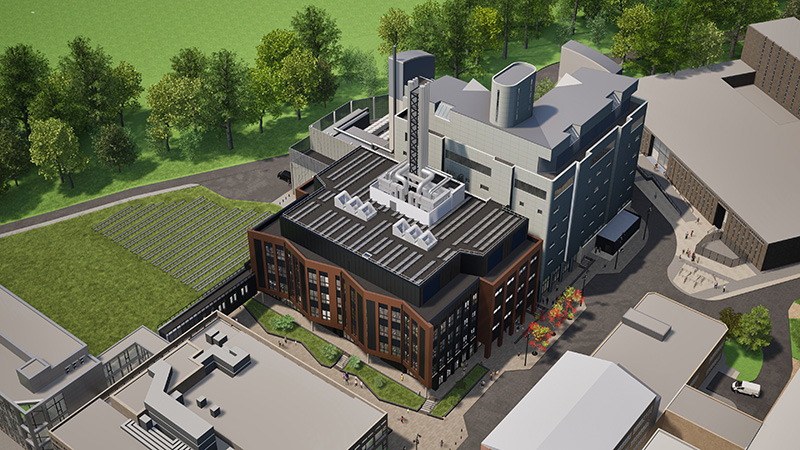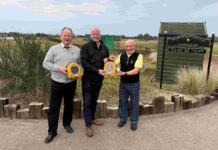
BMJ Architects has submitted a planning application for a proposed new building to replace the existing Darwin Tower at the University of Edinburgh’s King’s Buildings Campus for the School of Biological Sciences.
The development, tentatively named ‘New Darwin’, will deliver a building of a ‘reduced height and more appropriate scale’, akin to the adjacent buildings and landscape, offering ‘significant visual and environmental improvement’ to the campus, city, and surrounding areas.
BMJ Architects’ design will create both a new ‘front door’ and focal point for the school, and with physical linkages to the existing buildings, aims to transform this corner of the campus into a modern bioscience hub.
Central to the New Darwin building is a series of research labs, supported by an innovation environment encompassing incubator space, collaborative workspaces, and public engagement facilities. The building will also provide postgraduate teaching labs and learning spaces.
BMJ Architects said the overall design embodies a ‘natural contemporary feel’ throughout, from the earth tones in the façade to the natural materials and daylighting in the interiors.
Professor Thorunn Helgason, head of school, said, “It has been exciting to work with BMJ Architects to co-create this inspirational space. Designed to bring together diverse communities, it will foster the formal and informal connections that lead to the ground-breaking interdisciplinary research and teaching for which the School of Biological Sciences is celebrated.”
Designed to meet the LETI and CIBSE agreed ‘Net Zero in Progress’ definition, and in accordance with the Scottish Futures Trust NZPSB Standard, the New Darwin building will be an ‘exemplar’ in establishing a benchmark for future campus development in respect of achieving the university’s Climate Strategy goal to become a net zero carbon university by 2040.
In addition to university funding, the project is supported by external funders including the UKRI Research Partnership Investment Fund (RPIF), The Darwin Trust of Edinburgh and the Garfield Weston Foundation.








